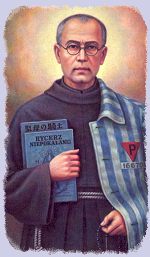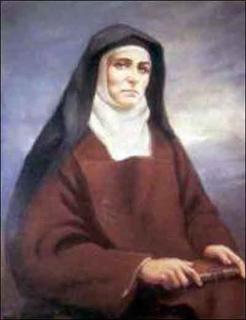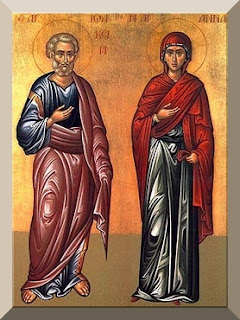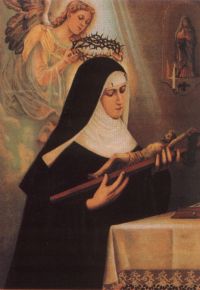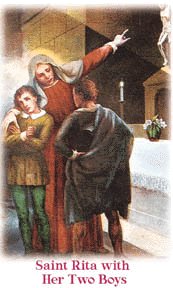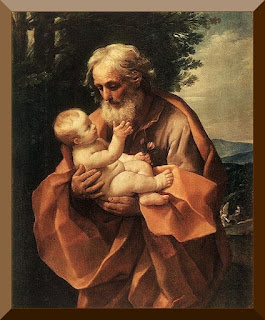November 1
Why has the Church appointed this feast?
To honor God in His saints, in whom He has shown Himself so wonderful, and to thank Him, as the author of all sanctity, for the benefits He has bestowed upon them.
To put us in lively remembrance of the communion of saints; that is, of all true children of the Church, whether they belong to the Church militant on earth, to the Church suffering in purgatory, or to the Church triumphant in heaven; but more particularly to cause us to consider, with earnestness, the communion of the saints in heaven with us, who are yet combating on earth.
To encourage us to strive for the like sanctity with them, and to teach us that it is by no means impossible; for if thousands of men could become saints, why should not we, who can do all things through Him Who strengthens us, and has sent the Holy Ghost for our sanctification?
To pay honor to those saints to whom no particular day in the year is dedicated.
That, in consideration of so many intercessors, God may grant us perfect reconciliation, may give us a share in their merits, and may grant us the grace of one day sharing in their joy in heaven.
By whom was this feast instituted?
By Pope Boniface IV, who, in the year 610, appropriated the Pantheon (that is, the temple of all gods) to the divine service of Christians, dedicated it to the Blessed Virgin and an saints, and commanded this feast in honor of all saints to be celebrated at Rome every year. Gregory IV, in the year 840, extended this feast to the whole Church, and transferred it to the 1st of November.
PrayerGospel: Matthew 5:1-12
O Almighty God, Who hast granted us to venerate in one, solemnity the merits of an Thy saints, we beseech Thee that, as our intercessors are multiplied, Thou wouldst bestow upon us the desired abundance of mercy. Through Christ our Lord, Amen.
Epistle: Apocalypse 7:2-12
In those days: Behold I John saw another angel ascending from the rising of the sun, having the sign of the living God; and he cried with a loud voice to the four angels to whom it was given to hurt the earth and the sea, saying: Hurt not the earth, nor the sea, nor the trees, till we sign the servants of our God in their foreheads. And I heard the number of them that were signed, an hundred forty-four thousand were signed, of every tribe of the children of Israel. Of the tribe of Juda, were twelve thousand signed. Of the tribe of Ruben, twelve thousand signed. Of the tribe of Gad, twelve thousand signed. Of the tribe of Aser, twelve thousand signed. Of the tribe of Nephthali, twelve thousand signed. Of the tribe of Manasses, twelve thousand signed. Of the tribe of Simeon, twelve thousand signed. Of the tribe of Levi, twelve thousand signed. Of the tribe of Issachar, twelve thousand signed. Of the tribe of Zabulon, twelve thousand signed. Of the tribe of Joseph, twelve thousand signed. Of the tribe of Benjamin, twelve thousand signed. After this, I saw a great multitude, which no man could number, of all nations, and tribes, and peoples, and tongues, standing before the throne, and in sight of the Lamb, clothed with white robes, and palms in their hands; and they cried with a loud voice, saying: Salvation to our God, Who sitteth upon the throne, and to the Lamb. And all the angels stood round about the throne, and the ancients, and the four living creatures; and they fell down before the throne upon their faces, and adored God, saying: Amen. Benediction, and glory, and wisdom, and thanksgiving, honor, and power, and strength to our God forever and ever. Amen.
At that time: Jesus seeing the multitudes, went up into a mountain, and when He was set down, His disciples came unto Him. And opening His mouth, He taught them, saying: Blessed are the poor in spirit, for theirs is the kingdom of heaven. Blessed are the meek, for they shall possess the land. Blessed are they that mourn, for they shall be comforted. Blessed are they that hunger and thirst after justice, for they shall have their fill. Blessed are the merciful, for they shall obtain mercy. Blessed are the clean of heart, for they shall see God. Blessed are the peace-makers, for they shall be called the children of God. Blessed are they that suffer persecution for justice' sake, for theirs is the kingdom of heaven. Blessed are ye when they shall revile you, and persecute you, and speak all that is evil against you, untruly, for My sake; be glad and rejoice, for your reward is very great in heaven. This gospel is read to-day because it is by practising what it contains that the saints have gained the eternal kingdom.
Explanation of the Eight Beatitudes
"Blessed are the poor in spirit, for theirs is the kingdom of heaven." The poor in spirit are:
Those who, like the apostles, readily forsake all earthly things, and for Christ's sake become poor.
Those who, happening to Jose their property by misfortune or in justice, suffer the Joss patiently, in resignation to the will of God.
Those who, like Jesus (Matthew 8:20), are content with theiE poor and humble position, seek no higher or happier one, and would rather suffer want than enrich themselves by unlawful acts, by fraud or theft.
The rich and noble who set not their hearts upon the riches and greatness of the world (Psalm 61:11; I Corinthians 7:30), but who use their riches and influence to relieve the misery of the needy and oppressed.
Finally, the truly humble, who, convinced of their weakness, their helplessness and misery, think lowly of themselves, and regard themselves but as beggars, who are always in need of the grace of God.
To all these, therefore, in whose hearts the world has no place, there is assured, as their inheritance, the kingdom of heaven; here the kingdom of grace, there the kingdom of glory."Blessed are the meek, for they shall possess the land." That man is meek who does not murmur against God for sending afflictions upon him, who is not angry at men who do him injury, but who rather suppresses impatience, anger, envy, and revenge, nay, who seeks to recompense the evil done him by his neighbor with good. Such a one is greater than he who takes by storm fortified cities (Proverbs 16:32); he possesses an unfailing fountain of peace, quiet, and cheerfulness; by his meekness prevails over the most hostile minds, is by such means truly a ruler upon earth, and will one day, for his portion, obtain heaven, the land of the living, there to enjoy eternal peace.
"Blessed are they that mourn, for they shall be comforted." By them that mourn we are not to understand such as grieve and lament over a death, a misfortune, a loss of worldly goods, or the like; but those who are grieved that God should be in so many ways offended by themselves and by others that His Church should be so heavily oppressed, and thereby so many souls lost that have been redeemed with the precious blood of Christ. The only evil really to be grieved for is sin, and the tears shed on account of sin are the only tears that are profitable, for they shall be recompensed with everlasting joy.
"Blessed are they that hunger and thirst after justice, for they shall have their fill." Hunger and thirst denote the most ardent longing after those virtues which constitute Christian perfection; such as humility, meekness, the love of God and of our neighbor, penance. Whoever longs for these virtues as the hungry man does for food and drink, and prays to God for them with perseverance and earnestness, shall have his fill; that is, he shall be enriched with them, and one day shall be satisfied with eternal happiness.
"Blessed are the merciful, for they shall obtain mercy." The merciful here spoken of are: 1. Those who willingly forgive the injuries done to them. 2. Those who have compassion on their poor neighbors, and, according to their ability, sustain them by alms. These shall obtain mercy; that is, God will forgive them their sins and endow them abundantly with the goods of this world and of the world to come. Thus God deals with us as we deal with others. (Matthew 7:2)
"Blessed are the clean of heart, for they shall see God." The clean of heart are those who preserve with care the innocence with which they are invested at holy Baptism, or seek to regain it, when lost, by penance; those who keep their hearts and consciences unspotted from all sinful thoughts, particularly from all unchaste thoughts, desires, words, and acts, and who endeavor in all things to have a pure intention directed to God alone. They shall see God, that is, they shall know Him even here upon earth, for as the eye that is to see must be clean, so only souls that are pure and unstained can behold God. But further, our knowledge is like our hearts; the purer the heart the clearer and greater is the knowledge of God. But in the world above they shall see, know, and possess Him as He is. What blessedness! Strive, therefore, to keep your heart clean.
"Blessed are the peace-makers, for they shall be called the children of God." By peace-makers we are to understand those who have peace with themselves, that is, a quiet conscience, and who endeavor to maintain peace among others, or to restore it when broken. Such are called the children of God, because they follow God, Who is a God of peace (Romans 15:33), and Who even gave His only Son to reconcile the world with Him (Romans 5:10), and to bring down upon earth that peace which the world itself could not give (Luke 2:14; John 14:27).
"Blessed are they that suffer persecution for justice' sake, for theirs is the kingdom of heaven." Hereby all those are declared blessed who, on account of the true faith, of virtue, of the fear of God, of purity, are persecuted, calumniated, and even put to death, and who bear all this with Christian patience and constancy, nay, with joy. Thus have the saints done, and thereby they have gained the heavenly crown. Do we desire to be crowned with them, we must also suffer with them. And in truth, if we would apply ourselves zealously to virtue, occasions will not be wanting to us, for all that will live godly in Christ Jesus shall suffer persecution. (II Timothy 3:12)
Prayer
How lovely, O God, are Thy tabernacles! My soul longeth and fainteth for Thy courts, O living God, Who art the crown and reward of the saints, and repayest their sufferings and sorrows in this world with eternal joy. How blessed are all they who, in this life, have served Thee faithfully! They behold Thee and the Lamb of God face to face; they bear Thy name on their foreheads, and reign with Thee forever. We therefore beseech Thee, O God, through their intercessor, to grant us Thy grace to serve Thee after their example, in sanctity and justice; to follow them in poverty, humility, meekness, repentance, in ardent longing for all virtues, in peace-making and patience, and one day, like them, to share in the joys of heaven. Amen.
--Goffine's Devout Instructions





